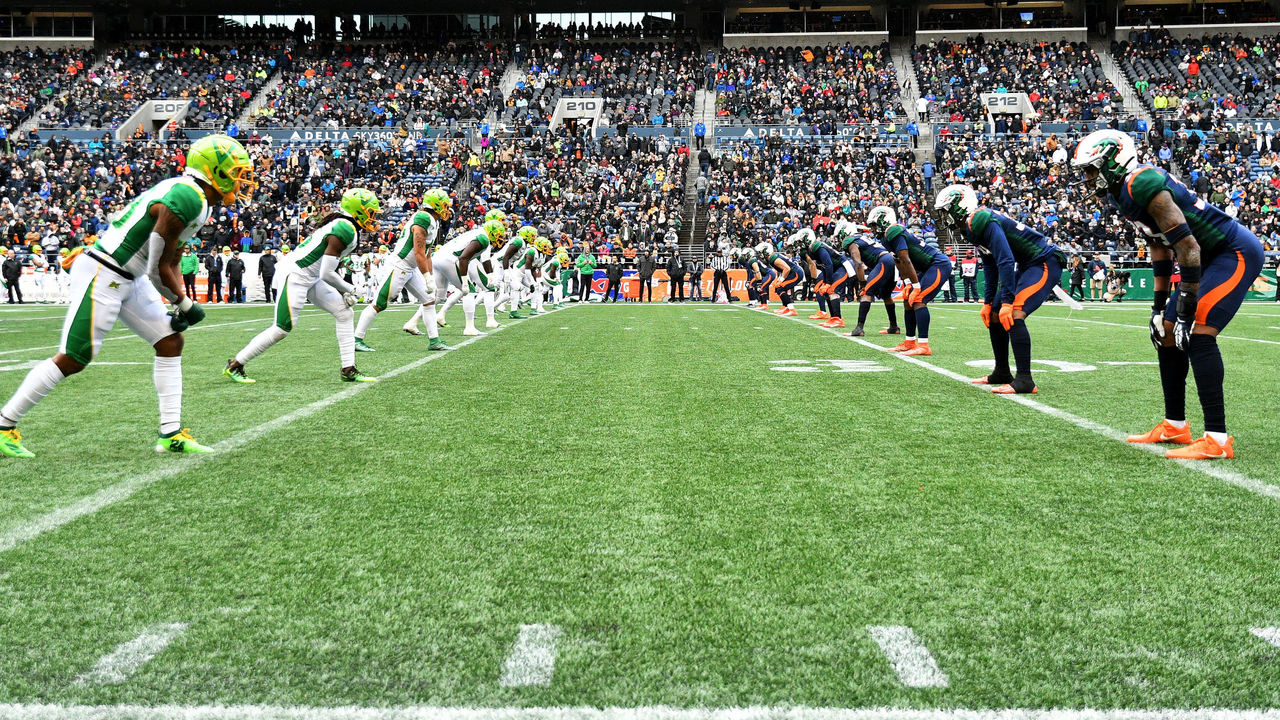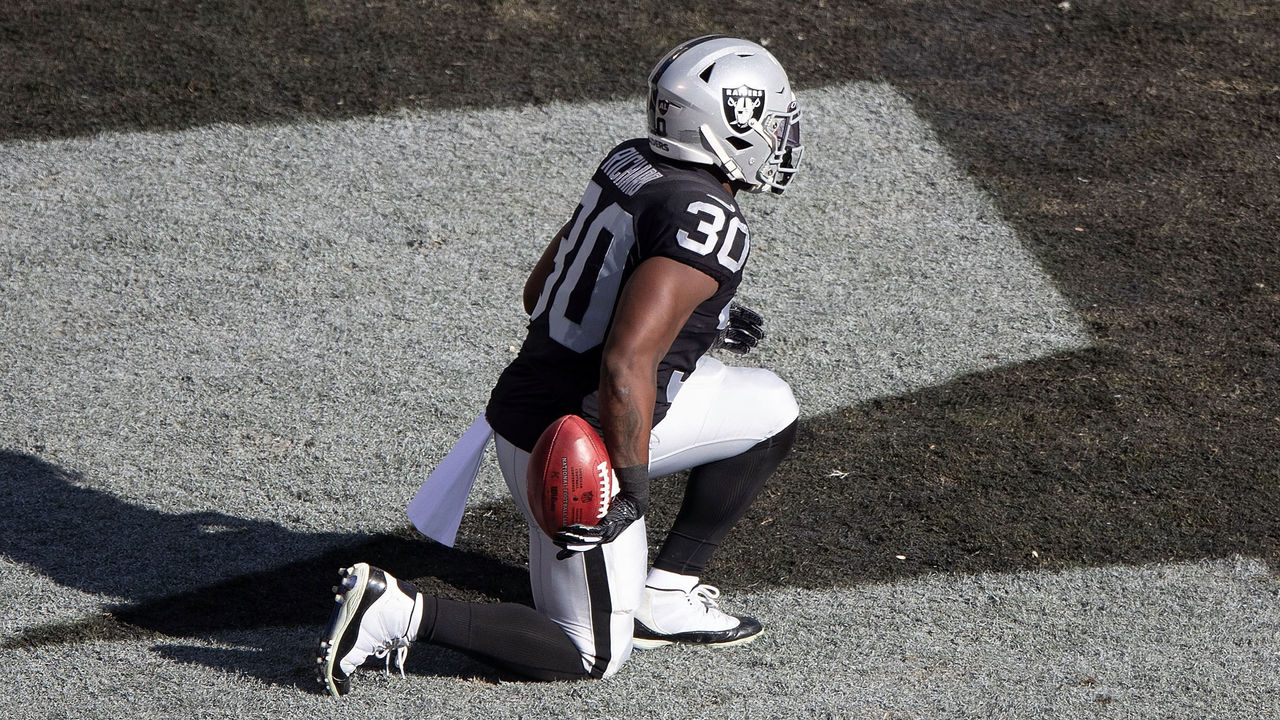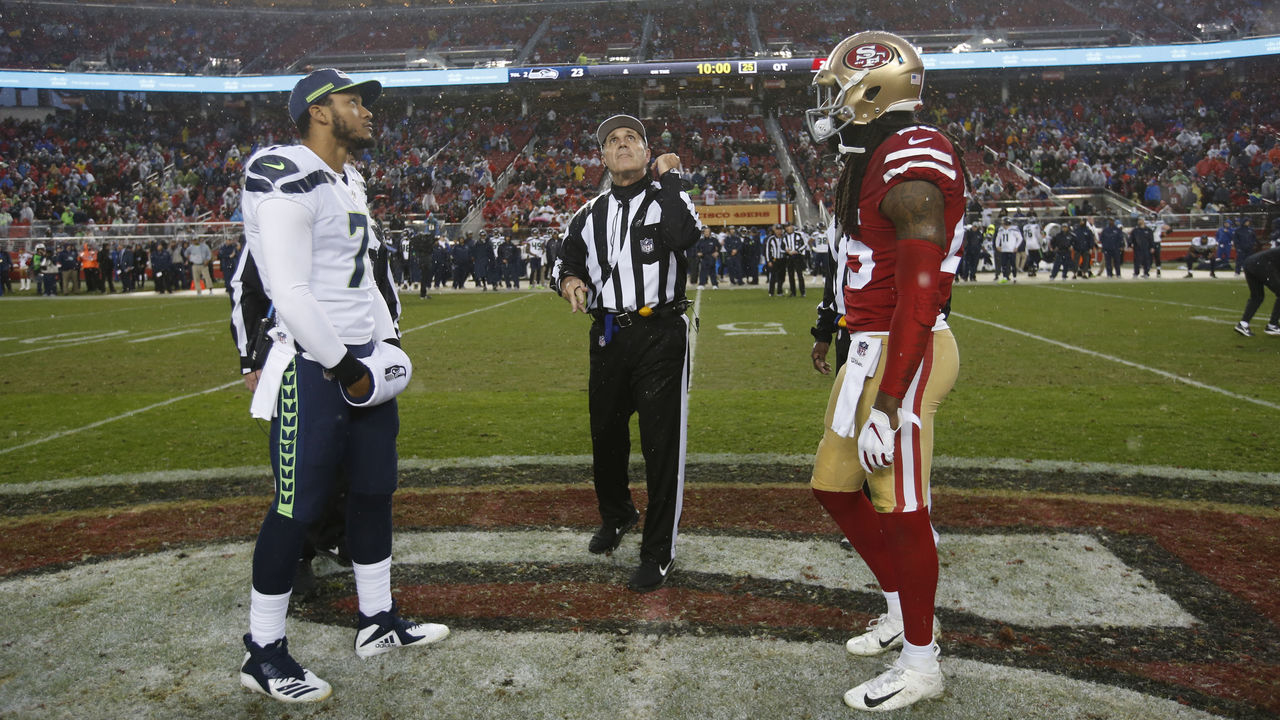Commish for a day: What to fix in the NFL
While major professional sports are on hiatus, theScore's writers are exploring what they'd do if this pause allowed for changes to the rules and structures of various leagues. This time, it's the National Football League. Previous entries tackled MLB, the NHL, and the NCAA.
The kickoffIn 2018, the NFL made major changes to its kickoff rules in an effort to reduce the full-speed collisions that so often ensue. There's also been some speculation that the kickoff may someday be eliminated. But it doesn't have to be this way. Lots of changes can be enacted to make the kickoff more interesting.
I'd start by implementing some of the kickoff rules the XFL instituted during its revival in February, which now seems like it was a lifetime ago. The XFL has 10 of the receiving team's players line up along their own 30-yard line, with 10 of the kicking team's players 5 yards in front of them at the 35. The exceptions on both sides are the return man and the kicker, and no one can move until the ball is fielded. From there, I'd make some changes.
 XFL / Getty Images
XFL / Getty ImagesI'd keep the kickoff spot at the kicking team's 35-yard line, for reasons I'll get to in a bit. I'd also have any kick into the end zone result in a touchback, with the receiving team taking over at its own 25 (as opposed to the 35, as the XFL does). But I'd retain the XFL rule in which any kickoff that lands in play and is downed in the end zone results in the kicking team taking over at its own 15. The goal here, as it is in the XFL, is to encourage returns for both sides. But let's go even further.
Any kickoff that sails through the uprights should be worth one point for the kicking team (I've banged this drum before). The idea was first floated a few years ago by Baltimore Ravens kicker Justin Tucker and has since been publicly endorsed more than once by Ravens head coach John Harbaugh. It would boost scoring, add excitement to a special-teams play that's largely been neutered by the 2018 rule changes, and introduce another decision-making element for coaches.
The opportunity for a point on kickoffs would create an additional incentive for field goals, especially early or in close games, since teams would get a shot at adding a fourth point. And there's all sorts of potential for late-game thrills and newfangled strategic thinking, since a nine-point deficit would conceivably become a one-possession situation. But would a team trailing by nine want to go for two before having its kicker aim for the uprights on the kickoff, or would it prefer to kick the extra point and attempt the onside kick, since a field goal could win the game? Just think of the Monday morning quarterbacking that might happen every time a coach screws this up!
This is where I'd add a risk-reward factor for the kicking team: A kickoff that lands beyond the end line without going through the uprights - as opposed to in the end zone or in the field of play - would allow the receiving team to start its possession at its own 30-yard line, rather than the 25. Would the risk of defending against that superior field position be worth the reward of getting that extra point? A lot would depend on the score, the time remaining, and the opponent - not to mention a coach's tolerance for risk.
Hell, let's include another wrinkle that was once suggested by Pro Football Talk's Michael David Smith: an exception for goaltending, at least on kickoffs. Currently, there's a 15-yard penalty for goaltending on extra points and field goals. But allowing goaltending on kickoff points would add the twist of a possible block right near the crossbar. How fun would that be?
 Jason O. Watson / Getty Images
Jason O. Watson / Getty ImagesA kickoff through the uprights would also mean the receiving team takes over at its own 20-yard line, rather than at the 25. This was actually proposed a few years ago by Washington owner Dan Snyder. Even though Snyder's suggestion had no scoring provisions, it's still almost certainly the best idea he's ever had.
There are potential drawbacks to the kickoff point; for instance, it reduces the kicker and the goaltender to the play's only functional players unless there is a return. Environmental factors like wind, precipitation, and altitude could also have a significant impact (i.e., the kickoff point could be very advantageous for the Denver Broncos), but those things already have effects and are generally accepted as part of the game of football.
And yes, the kickoff point is somewhat reminiscent of a rouge, the single point that's awarded for a touchback in the Canadian Football League. But come on - it's a helluva lot cooler than the rouge. Let's do it.
OvertimeAfter two straight postseasons that had games conclude when one team scored a first-possession touchdown, thus denying the other team of having the ball at all, it's time to redesign overtime in a way that's fair to both sides.
No, I'm not talking about the college approach of allowing each team an equal number of possessions from the opponent's 25-yard line, since that can cause the game to drag on forever. I'm also not so hot on the XFL's hockey-shootout-like system of having each team get one play from the opponent's 5-yard line. The best solution was developed back in 2013 by ESPN's Brian Burke, who was then writing for his personal website.
Burke suggested having the home team get the ball following a touchback from its own 15-yard line and ... that's it. From there, the two sides simply play according to the standard four-down rules until someone scores.
 Michael Zagaris / Getty Images
Michael Zagaris / Getty ImagesAt the time, Burke suggested giving the home team the ball at its own 15 after a touchback, with no coin toss. But since I plan to reimagine the kickoff, I'd eliminate the arbitrary coin toss and the kickoff from the start of OT. As Burke noted, the 15-yard line is "the net-zero point for scoring probability," which means an offense facing a first-and-10 from its own 15 has an equal chance as its opponent of being the next team to score.
More from Burke:
This removes the element of pure luck. Both teams and fans will accept that first possession in overtime is simply part of what is rightly home field advantage. Paying attendees will obviously like it. And in the playoffs, it will simply be seen as a benefit the home team rightly earned by virtue of their seeding from the regular season. Plus, a visiting team that scores a touchdown late in the game to otherwise tie, knowing it would be at a small disadvantage in overtime, may elect to attempt a two-point conversion. This would reduce the likelihood of overtime in the first place.
Best of all, it's so simple and easy to understand.
Replay review of pass interferenceI'd reverse the NFL's decision to make pass-interference penalties subject to replay review. It became pretty clear early last season that the rule was being selectively enforced and creating more confusion than anything else, as most of the league's reactionary rule changes tend to do.
Football is just fine with the occasional bad judgment call, even ones in late-game spots, such as the notorious one toward the end of the 2019 NFC Championship Game. The league needs to accept that it's impossible to keep crafting rules that will eliminate the possibility of human error. In recent years, it too often felt like these technocratic intrusions were overriding the live-action entertainment, as though any emotional response had to wait until it was approved by an unseen Wizard of Oz before fans could enjoy or be disappointed by what they just saw. Enough.
This 'n' that- NFL coaches are now apparently hot for a sky judge who could review any officiating mistakes, but I'd shoot this down. There's too much potential for even more chaos because the league would have to set parameters regarding which calls are subject to review. That sounds great - until a brazen missed call leads to shouts to expand those parameters into incoherence. The NFL needs to quit thinking it can legislate its rules to perfection.
- I saw this recently on Pittsburgh Steelers blog Behind the Steel Curtain, and I like it: Expand the number of timeouts in each half beyond three, but make one or two of them basketball-like 30-second breaks that would allow teams to stop the clock without permitting a full-blown opportunity to regroup on the sidelines. This would add intrigue to late-game situations without dragging out the stoppages.
- The NFL and NFLPA recently agreed to stop suspending players for positive marijuana tests and reduced the testing window to two weeks. I'd go further and not test at all, without making this information public. This way, the league can pretend it has a policy against a substance the federal government still ridiculously classifies as a Schedule I controlled substance without actually enforcing it.
- Put cameras on the goal lines. I'm generally not one for expanding replay review, but it seems silly that a good angle of the goal line isn't a requirement. New England Patriots head coach Bill Belichick has wanted this for years, but the league has rejected the idea because of the potential costs. "Maybe we could have a bake sale, raise some money for the cameras," Belichick responded after the idea got snuffed out. "We could do a car wash." Come to think of it, I want to institute this rule not because it's actually a good idea, but because I'm just amused by the thought of Belichick washing cars or selling brownies to make it happen.
Dom Cosentino is a senior features writer at theScore.
Copyright (C) 2020 Score Media Ventures Inc. All rights reserved. Certain content reproduced under license.